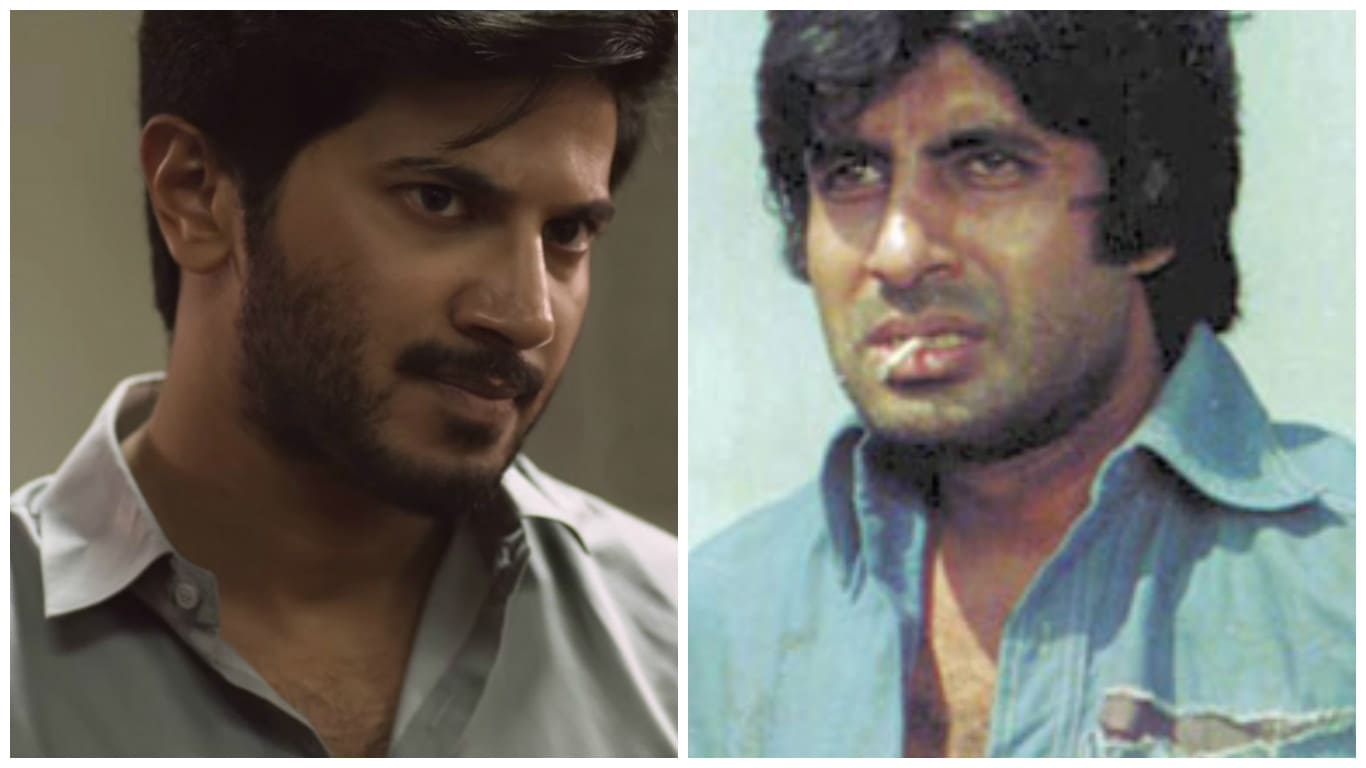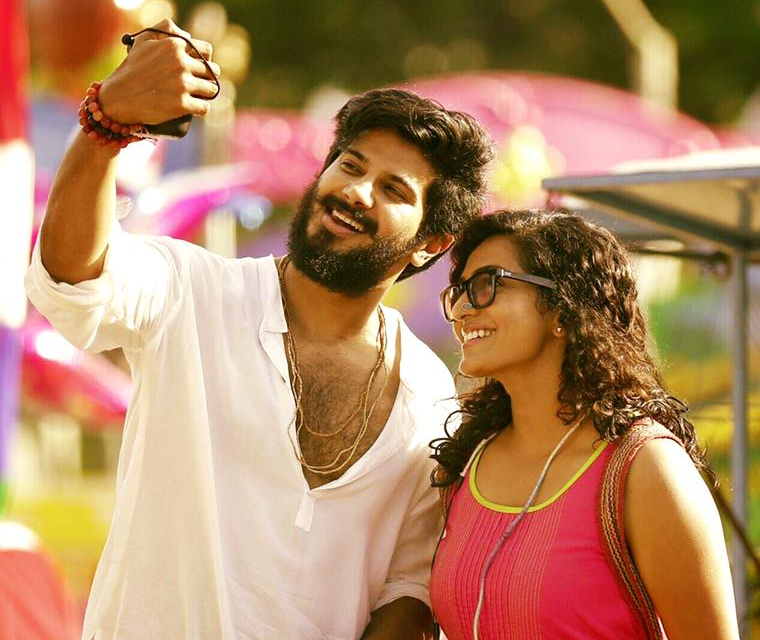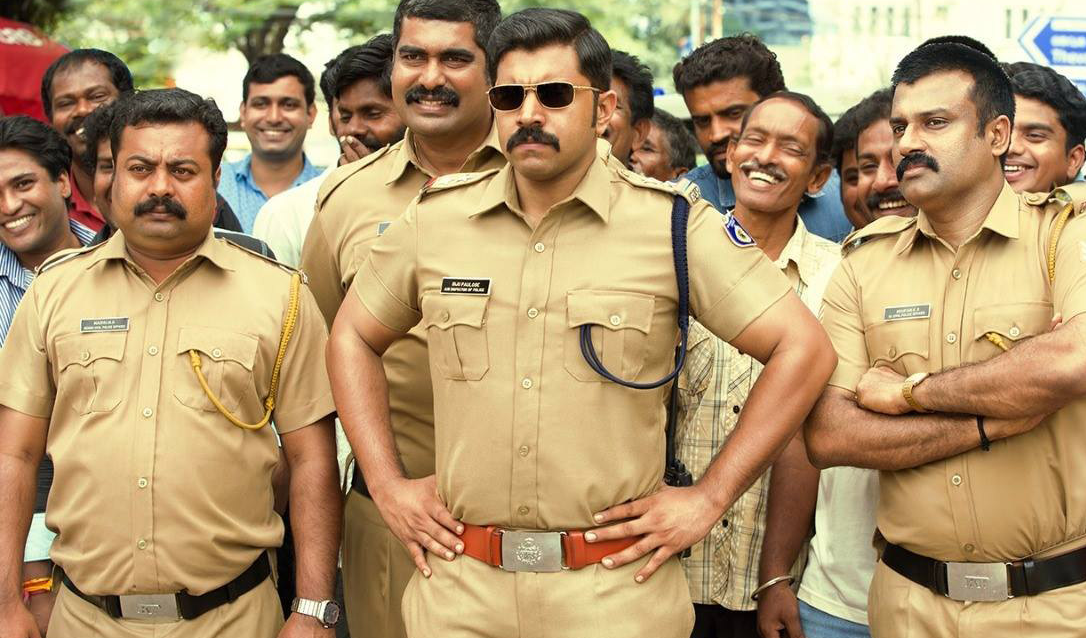
A poster of Action Hero Biju. (Image Courtesy - iflickz.com)
Quick Take
Summary is AI generated, newsroom reviewed.
Samir Tahir's Kali is a literal twist on the 'Angry Young Man.'
Charlie revolves around a girl who hopelessly falls for an unemployed man
Young filmmakers from Kerala have recreated well-worn tropes.

Image Courtesy: iflickz.com
Even more has been raved about the pan-Indian appeal, this 'mainstream' renaissance has conferred to the industry not-long-ago dismissed as 'tediously artistic,' now tempting even non-speakers of the language to make a beeline to theatres across the country for catching a glimpse of the astounding variety in display.
So, why again? Because, we recently had a 'Eureka' moment. Let me explain. When people talk about these new-age films, they usually contemplate on the way the crumbling of the 'superstar' tropes strategically coincided with the screenplay getting rooted-to-reality, filmmaking styles getting influenced by global trends while simultaneously retaining the local flavour, and lead characters becoming ordinary men and women. They also point to the emergence of young actors like Dulqer Salman, Nivin Pauly and Fahadh Fazil, who despite commanding a noteworthy fan following, could play these characters onscreen, without wearing the star tag on their sleeves. But wait, something new transpires this year, as one more delightful pattern emerges in each of their latest releases in the past three months.
So what makes these films special? On the surface, they are new-age 'cool' films - the kind you would not want to miss out in theatres. But dig deeper, you will see that, each of these films is a brilliant reinvention of a cliched core theme at heart. Thinking of it, it's simply amazing. Not convinced?
Angry young man, again?
Consider Sameer Tahir's new film Kali featuring the in-form Dulquer Salman. The film could be viewed as a literal twist on the 'Angry Young Man,' which was made immortal by one Amitabh Bachchan way back in the mid 70s. When Dharmendra and Rajesh Khanna were busy playing romantic heroes, this man introduced this 'box-office-gold' material to Indian cinema. And suddenly, the protagonist was brimming with anger over anything and everything, and more importantly in no mood to control it. He was, in many ways, the bold new face of a disillusioned generation.
And almost 40 years later, in Kali, Sameer toys with the genre by shifting the focus from the 'furious hero' to the character playing the protagonist. When the angry young man is not delivering justice, how does he deal with his anger? Does anger always equate to boldness, as made popular by our heroes? Kali is scripted in such a way that day-to-day situations are skilfully entwined with the trait, giving it a behavioural shade (rather than a noble shade) that keeps landing the protagonist in trouble. As the tension escalates in the latter half of the film, the character's trait, for once doesn't seem so heroic, but instead almost results in disastrous consequences. This closer-to-reality twist puts the film on a whole new pedestal.

Image Courtesy: iflickz.com
If I may, Dulquer's previous release Charlie, which happened towards the fag end of 2015, might also be seen as a beautiful twist to a much abused motif. The heroine hopelessly falling for an apparently jobless hero. Martin Prakkat simply replaces annoyingly cute heroine with an independent, smart, fearless and inquisitive graphic artist and the unapologetic loser hero with a lovable man-child who turns vagabond for a purpose, and sets up a magical wild-goose chase between them. By putting the lead pair in heart-warming situations and making them interact with a bevy of soulful and wacky supporting characters, he nonchalantly turns the tables on an age-old cliche; and gives this 'Bohemian' charmer of a film.
The cop 'routine'

Image Courtesy: iflickz.com
And look at Nivin Pauly's first release of the year Action Hero Biju, which imparts an all new sober colour to the stereotyped honest-cop movie. Here, Nivin plays a sub-inspector of the town station at Kochi, who is passionate about his job of maintaining law and order in the city. Most of our cop movies like to project their protagonists as all powerful and tough superheroes who roam around in bikes wearing stylish aviators, beat up baddies all the time, rescue the innocents every day risking their lives, take on the unscrupulous system single-handedly, while emerging unscathed in the end. But, is the daily life of a policeman so exciting? By taking us on a ride with a real cop and staying clear of all unwritten rules of cop dramas, Abrid Shine boldly subverts our every single expectation of an action-hero-cop featuring a star, in the process giving a sensible and grounded film that impresses with its simplicity.
The protagonist here, might put on a tough mask for the sake of his profession, but his ego and vulnerability keeps surfacing intermittently, reminding us of his human side. He starts his mornings by checking the attendance register and signing expense vouchers. Most of his time is spent dealing with domestic conflicts, petty criminals, and false alarms. Once in a while, a thrilling case comes by. But at other times, the cop-life is mostly painfully 'routine.' This gamble of a film - a level headed twist to the cop drama - doesn't aspire for the tension and atmosphere of a thriller, instead choosing to impress with loads of relatable emotions. The best part? The gamble works.
The avenger, once more

Image Courtesy: iflickz.com
In Fahadh Fazil's new film Maheshinte Prathikaram, director Dileesh Pothan, who made his debut with the film, gives a classy, realistic spin to the old fashioned theme of the wronged man craving for revenge. He works his magic by relying on meticulous detailing, delightful character developments and the genuine charm of the native milieu. Everything is so beautiful. But that beauty doesn't come at the cost of storytelling. Screen time is valued like platinum. It's not like seeing a beautiful painting.
The camera, somewhere down the lane, disappears. The visuals start breathing the context and the mood. It's like we have been dragged into the atmosphere - into the life of Mahesh and the people he interacts - and made to walk with them. The characters continue to get defined unapologetically, every passing second - every moving frame. We end up inside their heads. We start rooting for Mahesh from the bottom of our hearts. If something happens to this guy, we would want to help.
When he discards his Lunar chappals vowing to wear them only after a fitting retaliation, we know exactly why. And when he gets his vengeance in the end, we feel a strange sense of comfort and gratification. If this is not brilliant filmmaking, what is?
Four young filmmakers from Kerala have thus used the celluloid medium for giving their unique takes on well-worn tropes and plot-lines, resulting in films that convincingly bridge content and commerce. And none of these were niche films, just ones with a cool twist. Admittedly, the hackneyed crux of these 'cool' films may not be too conspicuous.
But when the truth hits, you can't stop smiling. As the smartness of the con-job sinks in, the smile is slowly replaced by awe. These new age makers had bowed before traditional motifs and rules, while silently and audaciously breaking them, without making a hue and cry of it. It's deceit. In different shades. Tasteful ones, at that. And they serve to reaffirm how a little inventiveness can actually take a 'cliched crux' to a whole new level - a trick that the rest of India could happily follow.
